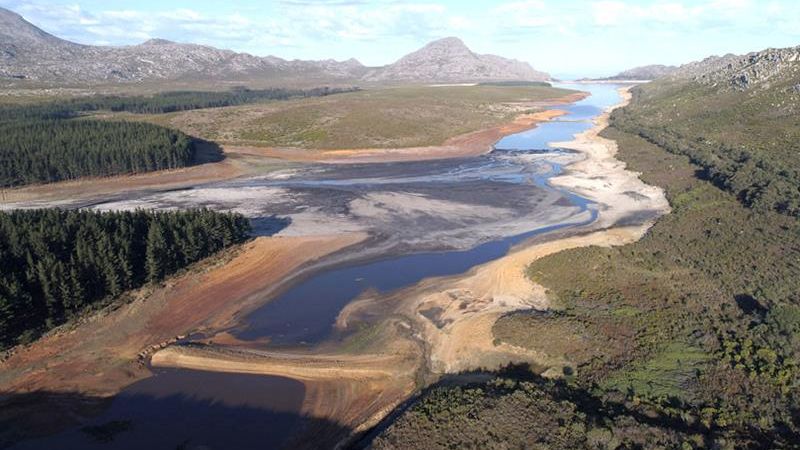Donald Trump’s call for Netflix to remove board member Susan Rice has intensified the Paramount saga, pushing the streaming wars into a political confrontation.
Cape Town’s Day Zero moves to 9 July 2018

Cape Town’s infamous Day Zero has been pushed back once again. the City’s deputy mayor Ian Neilson announced on Wednesday.
“Day Zero, the day we may have to start queueing for water, has now moved to 9 July due to a weekly drop in dam levels of only 0.5%,” he wrote in a statement.
“This week’s lower rate of consumption can be attributed to the Groenland water reaching Steenbras Upper Dam last week and slightly increasing the dam level.”
The dam’s level increased by 4.5% over the previous week. Neilson also attributed the push back to a “further reduction” in the city’s weekly water consumption rate, which now stands at around 520-million litres per day.
At the time of writing — a day since the City’s latest dam report — its storage level has increased an additional 0.9% to 87.6%.
In graphs: Cape Town dams 24.4% full as water usage spikes [19 Feb 2018]
Although #DayZero has largely fell to the wayside this week in the wake of SONA 2018, Cape Town is still in the midst of a drought. But judging by the City of Cape Town’s latest dam report, it seems that the situation is beginning to stabilise. Read more…
These factors allowed the City to push back Day Zero to 9 July 2018, a delay of more than a month from its previous date of 4 June 2018.
“The Groenland water transfer and the reduction in our weekly average demand has had a dramatic impact on the Day Zero date, which is determined by assuming that the fortnightly trend of weekly dam storage change will continue unchanged,” he continued.
Neilson however warned that if Capetonians continue to use more than 50-litres per day per person, the City may have to switch off taps in June.
“Our water saving efforts across the metro have thus far been our greatest defence against Day Zero. Now is definitely not the time to ease up.”
Feature image: Steenbras Dam, April 2017 by City of Cape Town


